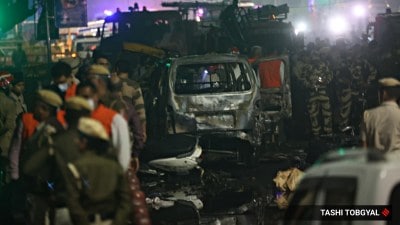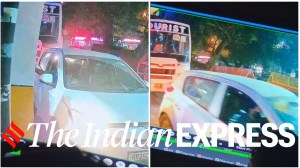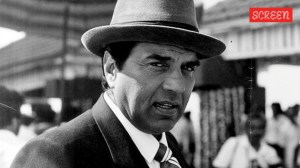What is the BSNL tender controversy all about?
The state-owned telecom service provider,BSNL was once a prized company for the government without officially being conferred the title of navratna.
The state-owned telecom service provider,BSNL was once a prized company for the government without officially being conferred the title of navratna. A late starter it was carved out of DoT only in 2002 but caught up with competition fast and within a year became the second largest player in the GSM mobile space. it had then the full potential of becoming the numero uno but then tragedy struck. The labyrinthine government rules and procedures delayed its tender for capacity expansion in 2006 striking a death blow. The company is once again mired in tender-related controversy. What is it all about?
What is the BSNL tender,which is stuck due to a CVC investigation,all about?
In April 2008 BSNL floated a tender for adding 93-million GSM line capacity. The line capacity addition was the highest in the world,meaning no other telecom operator places equipment order of this size at one go. The supplies out of this tender were spread over a period of three years. There was a precedent to this tender. In 2006 the company had floated a tender for adding 45 million line. When the time of awarding it came in 2007 after numerous delays and court cases,A Raja had replaced Dayanidhi Maran as the communications and IT minister. Immediately after taking over Raja found the lowest bidder (LI) price to be too high and held negotiations to have it lowered. Finally some lowering of price happened,but the tender size was halved. The final placement of order took place happened much later costing BSNL dear. The companys network capacity had reached a saturation point and it could not add much subscribers. As a result it lost its position as the second largest operator by subscriber base in the GSM mobile space to Vodafone-Essar. To make up for the pruning in the tender,BSNL decided to float a fresh tender and thus the 93-million line order.
What was the problem?
The first problem the company encountered was when Nokia Siemens got disqualified on technical grounds leaving only Ericsson in the fray in two zones North and East. Nokia Siemens sought legal redressal but failed. Ericsson was the lone bidder but its price was found to be on the high side for which BSNLs price negotiations team held consultations and achieved some reduction but not satisfactorily enough. In December,2009 a government nominee on the board of BSNL,wrote a dissenting note stating that the tender process violated the Central Vigilance Commission guidelines which forbid post-tender negotiations as they can be a potential source of corruption. The CVC guidelines prohibit such bargains but in exceptional cases. These exceptional circumstances didnt apply in this case. In the post-tender negotiations BSNL did not set any benchmark for pricing and left the field open to Ericsson which was violative of another CVC guideline violation. There was third violation since CVC guidelines allow a time span of only 15 days for such discussions whereas BSNLs post-tender negotiations lasted months. There were complaints lodged with CVC on these and several other irregularities and the agency finally ordered an investigation,which forced the BSNL board to put the tender on hold.
Does the CVC probe not amount to delaying the expansion plans and furthering the interests of the corporate rivals?
No. The answer to this question is not so simplistic as it appears. The delays in tender in 2007 certainly harmed the companys expansion plans and cost it dear but much has changed in the telecom sector in general and BSNL in particular since then. The CVC intervention definitely means that the procurement would be further delayed but that is the lesser evil compared to the massive loss it would have incurred had the company gone ahead with the procurement. BSNL had floated the tender in April,2008 assuming its market share in the next few years would become 30%. However,as on date its market share is down to 12% and is expected to further go down to 6% in the next two years. So it didn’t need to procure 93 million lines. Second,even after the negotiations,the company would have procured equipments at a price 130% higher than at which it had procured the same equipments under the previous tender. Had the company gone ahead with the tender,it would have amounted to the last nail on BSNLs miserable financial health.
What should it then have done?
Instead of going for a 93-million tender the company should have gone for a tender of lower quantum. Second,it should have ensured that the technical specifications were such that any vendor of global repute does not fail on that ground. More bidders would not only have ensured better,competitive rates as globally equipment prices have come down but also given the company the option of awarding it to the L2 or getting better prices in post-tender negotiation with LI. Third,seeing the prices high it could have scrapped the tender and either gone for a short re-tendering or scaled up the order in the previous awarded tender by negotiating the price factoring inflationary costs.
But should not BSNL be allowed to take such commercial decisions itself rather than some big brother directing it?
Ideally yes. Commercial decisions are best taken by professional managers. But then BSNL is not a private company but a PSU,wholly-owned by the government. It therefore comes under governments procurement norms,which can be only through open tenders,which would then be audited by bodies like CAG and various Parliamentary bodies. So far the government holds a majority of 51% stake in the company it is not possible for the company to escape such guidelines unless the government passes some law to this effect.
Where does BSNL stand in terms of revenue and profitability?
Around four years back BSNL’s financial position was very sound. It had revenues to the tune of Rs 40,000 crore and net profit of Rs 10,000 crore. However,it had certain government support. For instance,it did not have to pay any licence fee to the government as other private sector players. For its non-viable rural operations it got money from other operators in the form of access deficit charge. In the last few years the slide has begun as the competitive elasticity has intensified and the government support withdrawn. For the last two years the company’s revenue base is not increasing and is around Rs 35,000 crore. In 2008-09,its net profit declined 81% to a mere Rs 574 crore. Alongside operational and wage costs are increasing. For instance,it has around 3 lakh employees and its wage bill accounts for almost 40% of its revenue. Compare this to its private sector peers like Bharti Airtel for whom the employee cost is around 5% of revenue. No wonder during 2009-10 the company is projected to post a net loss,which would be its first since inception. The strongest asset in its balance sheet is its cash reserves of Rs 36,000 crore.
What is the way forward for the company?
The problems of BSNL begin with government and can only end with the end of the government control . Till the time it is a government-controlled company things would only change for worse. The labyrinthine rules and regulations,coupled with monitoring by CVC,CBI and CAG as well as Parliamentary bodies would make it very difficult for the company to survive in a highly competitive market as telecom. The solution proffered is that the company should be listed and this would end its problems. However,this is way off the mark. With just 10% divestment the government would still control the company and hardly any functional autonomy would come its way,the case of MTNL is a pointer where the government holds 56% but the company is in even worse position. The best way forward would be strategic sale in the company where the government brings down its stake to 26%.





- 01
- 02
- 03
- 04
- 05


























